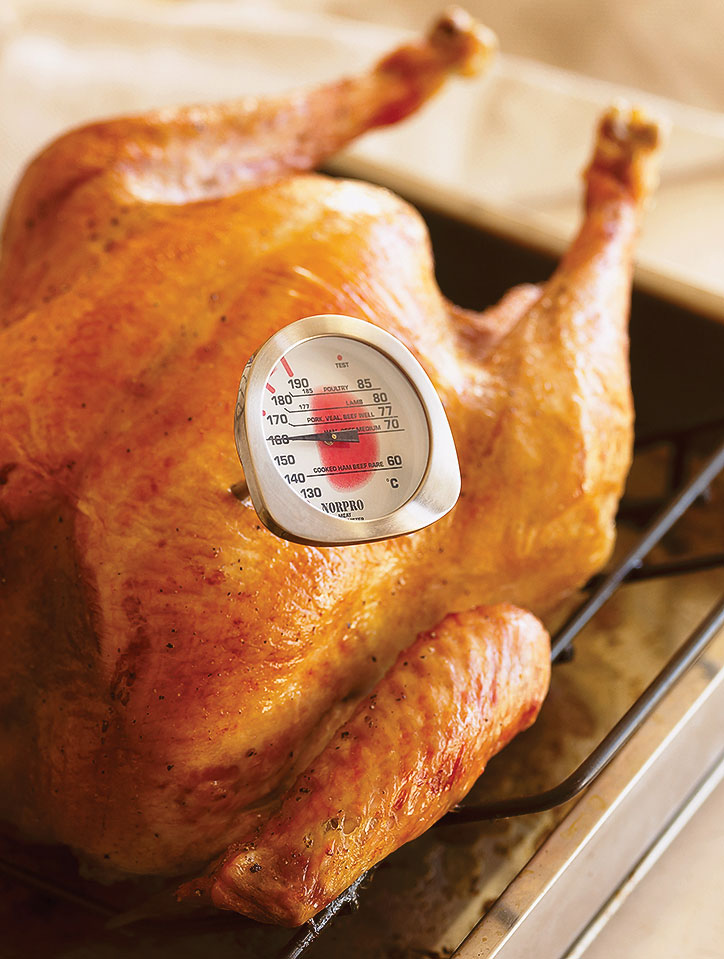As we plan our Thanksgiving gatherings, it’s important to remember food safety. Holiday meals have been linked to outbreaks of many pathogens including Salmonella, Campylobacter, Clostridium perfringes and Staphylococcus aureus. Cooking for a crowd larger than normal, whether in the home or in a community kitchen, can lead to mistakes at the expense of food safety.
Dr. Ben Chapman, Associate Professor and Food Safety Extension Specialist at NC State University, recommends the following methods to reduce the risk of foodborne illnesses this Thanksgiving and holiday season.
What you can do:
- Clean and sanitize utensils and work services after preparing raw turkey for roasting.
- Wash your hands after handling raw meat or poultry.
- Don’t wash your turkey. Recent research has shown that when washing poultry, the pathogens can be spread within 3 ft. of the sick, which may include already prepared fixings.
- Color is not an indicator of safety or doneness. Often there are suggestions in recipes about turkey being done when “the juices run clear”. That’s a myth, The only way to know whether the turkey is done is with a tip-sensitive digital thermometer reading at least 165 degrees F. Stick it in multiple spots but be sure the thermometer doesn’t touch the bone as it conducts and may give an incorrect temperature reading.
- Refrigerate leftover turkey within 2 hours of taking it out of the oven. Turkey should be cooled to 41 degrees F quickly. This is best accomplished by placing sliced leftover turkey in resealable bags of 1 quart or smaller size. Bags should be laid flat in the refrigerator to allow cool air to circulate. Some spore-forming bacteria will grow and form toxins if kept at room temperature too long.
We want you to have a wonderful and enjoyable Thanksgiving. Taking these few extra measures to ensure food safety is worth it. And to enjoy that leftover sliced turkey, try this soup or these
For a printable flyer, click here: Turkey Food Safety.
For more information about food safety, check out Dr. Ben Chapman’s podcast, Food Safety Talk, or his blog, barfblog.com. To follow him on Twitter: @benjaminchapman.

One thought on “Thanksgiving Food Safety: How to Know When Your Turkey is Done”
Comments are closed.